ALAN HOLTHAM says prevention is the watchword.

Egg eating, like feather pecking, is one of those issues that seems suddenly to appear and then become a major problem, but it will sometimes just as soon go away. However, it doesn’t always, and if your birds are eating their own eggs, you need to try and nip it in the bud immediately before it becomes a regular habit, as once one starts others will undoubtedly follow.
Many keepers regard egg eating as incurable and will often recommend culling the offenders, that is assuming you can identify the culprit. Although this might become necessary, it is a bit extreme. However, there is a lot you can do to prevent the problem occurring in the first place with a few basic measures, mostly aimed at preventing the eggs getting broken in the nest boxes. Once an egg has been broken and the birds have tasted the contents then they are more likely to want to sample it again. You only have to drop an egg in the run and see how the birds dive on it in seconds to realise just how good they must taste to them. We know the feeling!
Make sure there are enough nest boxes
For a start, make sure there are enough nest boxes for the number of birds you have, and also that they are big enough. They should be at least 300mm square, and I like to allow at least one box for every 5 birds. Ideally site the boxes well up off the floor, 60-90 cm is ideal and keep them well away from the roosting area if you have a choice. They also need to be dimly lit so site them well away from the coop entrance and consider hanging up some ‘curtains made from strips of thin black plastic to provide further privacy. This keeps them calm and makes a real difference as they then can’t properly see what they are doing.
هذه القصة مأخوذة من طبعة Sept - Oct 2017 من Practical Poultry.
ابدأ النسخة التجريبية المجانية من Magzter GOLD لمدة 7 أيام للوصول إلى آلاف القصص المتميزة المنسقة وأكثر من 9,000 مجلة وصحيفة.
بالفعل مشترك ? تسجيل الدخول
هذه القصة مأخوذة من طبعة Sept - Oct 2017 من Practical Poultry.
ابدأ النسخة التجريبية المجانية من Magzter GOLD لمدة 7 أيام للوصول إلى آلاف القصص المتميزة المنسقة وأكثر من 9,000 مجلة وصحيفة.
بالفعل مشترك? تسجيل الدخول
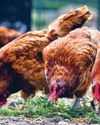
Growing food for Chickens
Mary Larham explores some crops to grow on your holding…
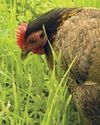
Poultry in the garden – the truth!
Jo-Jane Buxton shares her experiences

The British Waterfowl Association
Which came first, the goose or the egg?
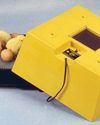
WHY FIT A FAN IN AN INCUBATOR?
Brinsea Products, the Incubation Specialists explain the difference between still air and forced draught
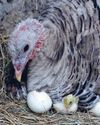
Incubating turkey eggs
Janice Houghton-Wallace looks at broody turkeys and artificial incubation

Chicken nesting box herbs
Diana Clauss owns The Blue Feather Farm, in St Cloud, Florida, home to chickens, ducks, goats, and Anatolian Shepherd dogs.
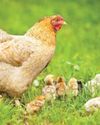
Incubate in January?
Jessica Wombwell says plan the breeding
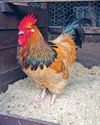
Andy's DIARY
Andy emphases the importance of keeping out damp and wet but allowing ventilation even in cold weather
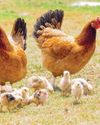
Feeding for Breeding
It may be winter, but as Joanna Palmer, nutritionist for Smallholder Range explains, now’s the time to get your flock in tiptop shape and plan ahead for a successful breeding season next spring.
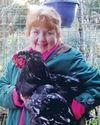
A chick named Cuckoo raised by a duck!
Chris Hammacott and her husband live on a small croft in the Outer Hebrides, they keep a ‘no kill’ flock or rare and rescue sheep which they use to spin and weave rugs. They also share the 8 acres with hens, ducks, cats and 9 rescue pugs.